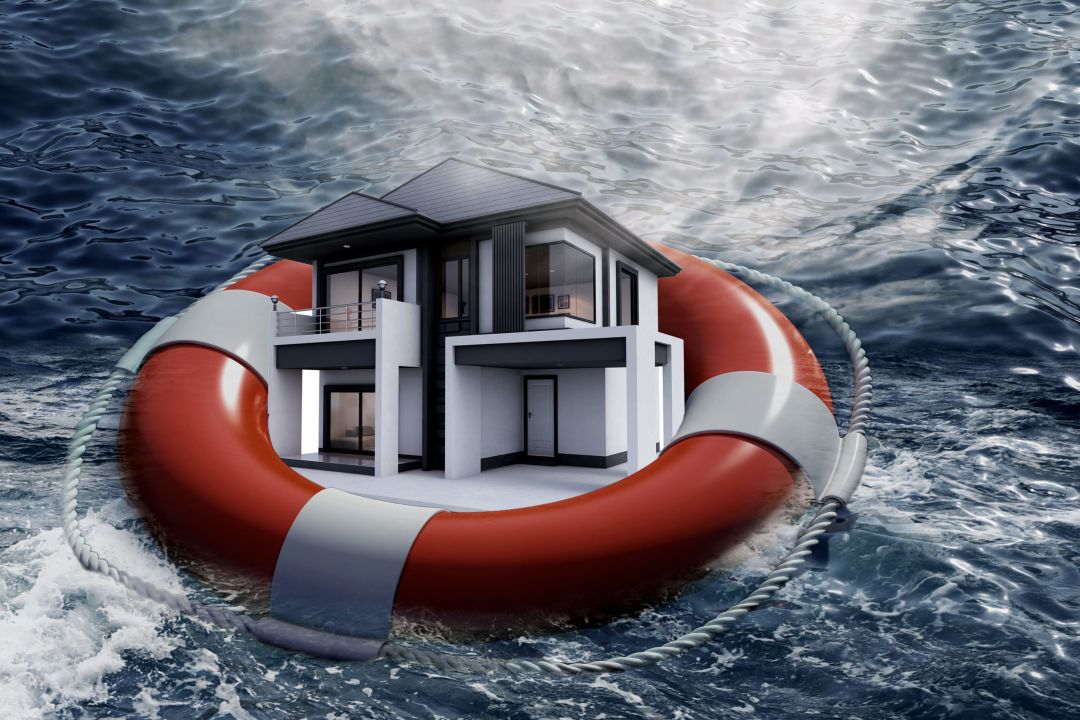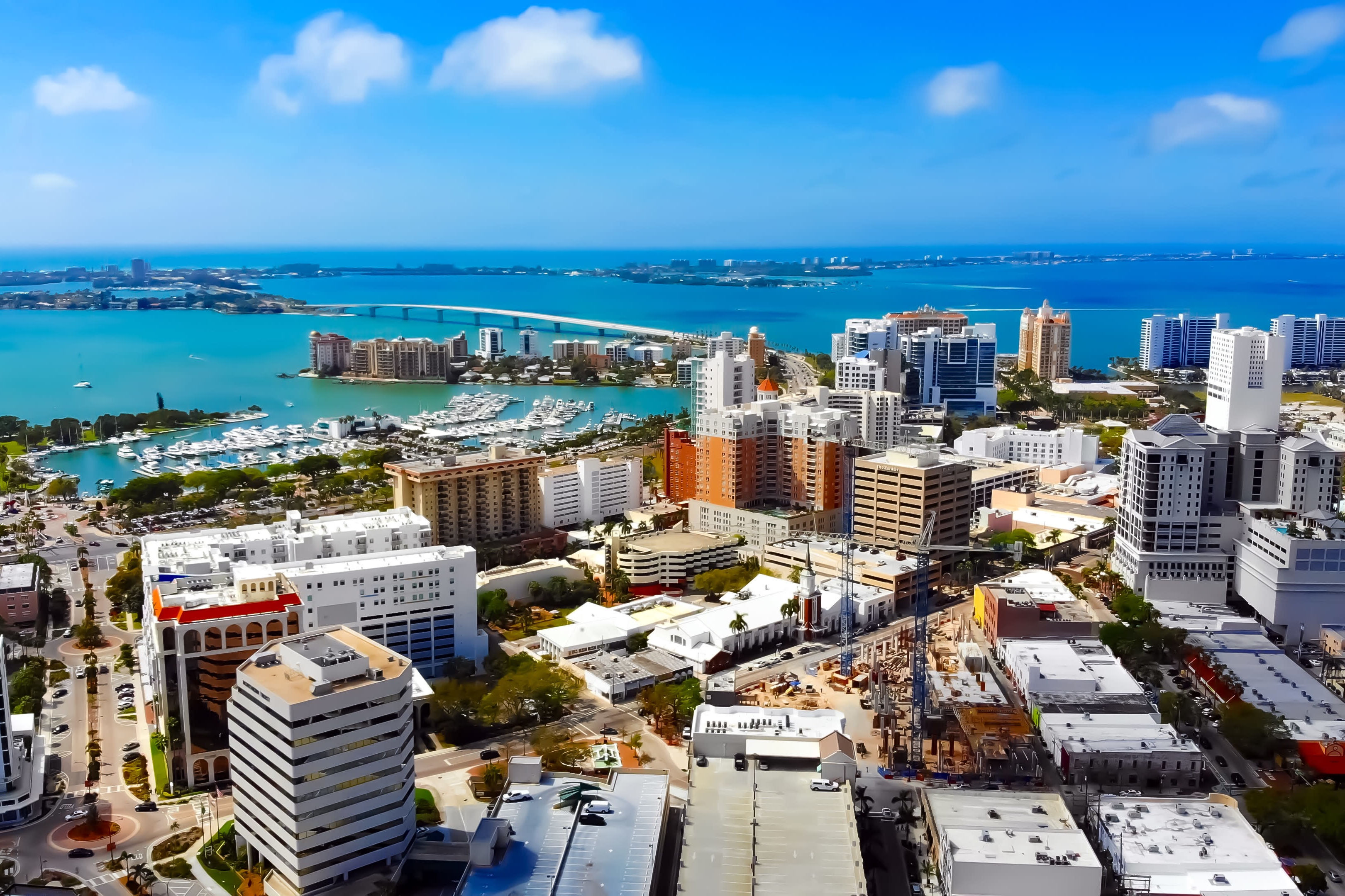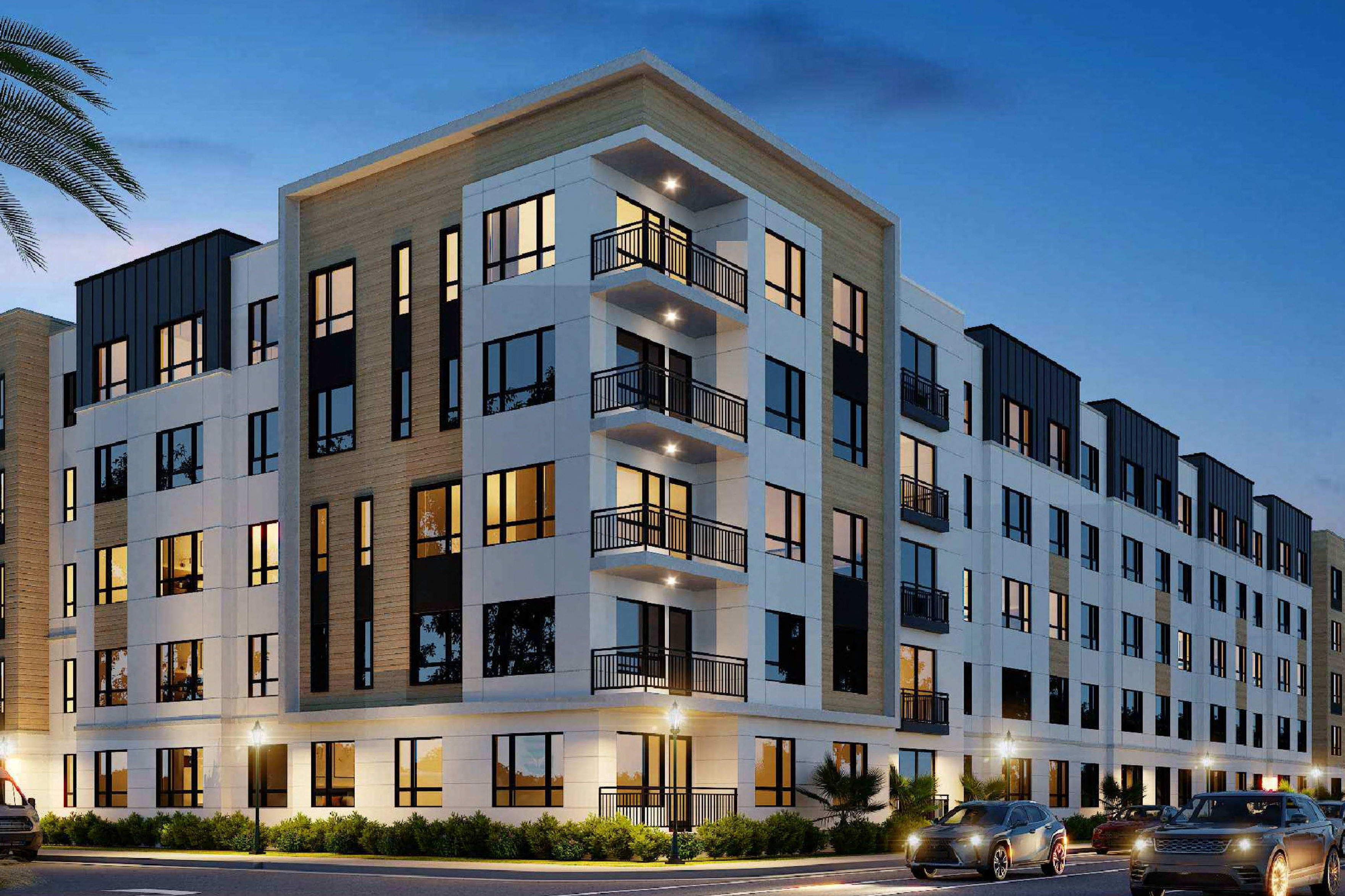Three Local Realtors Share Their Thoughts on Sarasota's Post-Hurricane Residential Real Estate Market

Florida's housing market is facing increasing challenges, with a recent report from real estate brokerage Redfin highlighting a notable slowdown. According to Redfin's data, Florida is home to the five U.S. metros where pending home sales are falling fastest: Miami, West Palm Beach, Jacksonville and Tampa, which each saw declines in prices ranging from 7 percent to 14 percent. By comparison, pending sales rose by 4.7 percent nationwide during the same period.
While local real estate data for October, when Hurricane Milton hit, has yet to be published, local housing inventory was already trending upward before the storms, with condos entering a buyer's market. Now, the downturn can also be attributed to frequent natural disasters, compounding increases in home insurance costs, and rising HOA fees for condos.
Hurricane Helene, which brushed past Sarasota on Sept. 26, brought unprecedented storm surge and flooding to the region. Less than two weeks later, on Oct. 9, Hurricane Milton slammed into Siesta Key as a Category 3 storm, compounding the effects of Helene as well as Hurricane Debby, which caused widespread flooding and damage in both coastal and inland areas in August.
On top of that, local home prices and property taxes remain higher than they were before the pandemic’s home-buying frenzy.
Still, despite the challenges—and the new national data—local realtors continue to view the market through rose-colored glasses, no doubt bolstered by the fact that Sarasota was just ranked the fourth-best place to retire and the 11th-best place to live by U.S. News & World Report.
We spoke with three leading figures in the Sarasota real estate market: Debi Reynolds, managing broker at Sarabay Real Estate; Terrence Cook, managing broker at Premier Sotheby’s; and Tony Barrett, broker-owner of Barrett Realty and president of the Realtor Association of Sarasota-Manatee (RASM). Each shared insights into current conditions and the future of Sarasota’s residential real estate market. These interviews have been edited for length and clarity.
How has the real estate market been impacted by the recent hurricanes, particularly for waterfront properties?
“We’re still seeing strong activity in waterfront properties, especially those that may not be directly beachfront but still have a dock," Cook says. "The demand is there, and many buyers are not deterred by the storms. However, beachfront properties have seen less activity, primarily because of the extensive damage in areas like Siesta Key. Investors are definitely more active in the market, sometimes looking for deals where they can buy land value. For some sellers, it’s a good time to cash out and move on, especially if they’re struggling with insurance claims.”
“I’ve noticed a shift, but not necessarily a major one," Reynolds says. "There’s still a lot of demand for waterfront properties, even those that took on water. Some buyers are more focused on the [waterfront] lifestyle and the potential to rebuild than the immediate condition of the property.”
"The general sentiment seems to be that people are resilient and are coming back, but buyers are certainly factoring in the risk," Barrett says. He also highlights a new state law that went into effect on Oct. 1 requiring sellers to complete a flood disclosure form, documenting whether they've ever filed a flood damage insurance claim or received government assistance for recovery. The law had already passed prior to the recent storms, but it's especially relevant now.
Do you find that locals are more inclined to list their properties now—especially those with damage or land value?
"Yes, we’ve seen an uptick in listings, and it’s still a bit early to say if this is entirely due to the storms," Cook says. "Some homeowners are simply motivated by the seasonal influx of buyers, and they recognize the opportunity to list their properties now. Many are selling for land value, particularly those with homes that sustained significant damage. We may see prices dip temporarily as these properties sell ‘as-is,’ but once that inventory clears, the market will stabilize."
Barrett agrees. "Some homeowners are also capitalizing on land value, knowing that demand for real estate remains high despite the damage," he says.
Meanwhile, Reynolds confirms that more inventory is hitting the market, "but I don’t think it’s a knee-jerk reaction to the storms," she says. "It’s not necessarily a panic move. And, in some cases, there are options [for homeowners] like elevating homes rather than demolishing them. Sellers are considering all their options."
"Among owners of second or third homes on the barrier islands, those people are finding it easier to simply list it rather than deal with the aftermath," Cook adds. For those who have the means, which are many, they may start looking inland."
With the increase in inventory, how will property values be impacted county-wide?
"In the short term, we may see some downward pressure on prices, particularly with homes that were severely damaged. But as those properties sell and are repaired, I expect the market to return to pre-storm levels," Reynolds says. "Buyers are savvy—they know what to look for and what to expect, and they’re factoring in the cost of repairs when they make offers."
Cook predicts a dip similar to what happened after Hurricane Ian. "There was a short-term decrease in property values, but once those damaged properties were sold, the market recovered," he says. "It’s the same now—demand for land and property is still strong, especially for new construction. That’s where the market is shifting."
"As more homes come on the market, some properties will undoubtedly sell at a lower price due to their condition," Barrett says. "But once those distressed properties clear out, I think we’ll see prices stabilize. Sarasota remains one of the most attractive areas in Florida."
What are you seeing in terms of changes in buyer behavior? Are people more cautious now?
"Yes, particularly with flood insurance and potential damage concerns," Cook says. "But that’s not deterring everyone. Waterfront buyers, in particular, are aware of the risks, but they’re willing to take them for the lifestyle they want. There’s also a growing interest in condos downtown, which offer proximity to the water without the same vulnerabilities."
"There’s a mix of cautiousness and optimism. People are looking for properties that offer long-term stability," Reynolds says. "There’s a strong market for those willing to invest."
"Interest is coming from everywhere, including international buyers. Land is finite, and when it becomes vacant because a home can't be rebuilt, some people simply don't want to go through the process of rebuilding," says Barrett. "There’s a demand for distressed properties, although some of it is driven by scams. Others are just being opportunistic, hoping to get property for as little as possible.
"Without knowing what insurance or FEMA will provide, it can be tempting to walk away [from a property," he continues. "If you've inherited a property and suddenly face the need to invest six figures into repairs, it’s understandable to hesitate—especially when the future is uncertain. Many people don't have the extra cash for repairs and may not want to invest in something that could be at risk again. For some people, investing in stocks or bonds might seem safer than sinking money into a home."
What’s your outlook for the high winter season this year?
"It’s too early to tell, but I believe Sarasota will continue to see a strong market, especially as winter weather sets in up north," Cook says. "As long as we’re able to showcase the Sarasota lifestyle—boating, beaches, arts—there will always be demand."
"People tend to forget the storms once the weather turns cooler up north," Barrett says. "They start looking for their next home, and Sarasota will be at the top of their lists."
What's the future of Sarasota’s real estate market, in light of these challenges?
"Sarasota is a resilient market. Yes, the storms have caused disruption, but we’ve seen this before, and the market will bounce back," Reynolds says. "There’s a lot of potential for rebuilding and revitalization. I believe we’ll continue to see growth, especially in areas where new construction is booming."
"The real estate market may face some challenges in the short term, but in the long term, Sarasota is still one of the best places to live in Florida," Cook says. "The demand is there. As we recover, the market will continue to grow."
"Sure, there are hurdles to overcome, but this is still a beautiful place to live, and people will always be drawn to that," Barrett says.
If you're a homeowner in need of disaster relief from the recent storms, Barrett urges the public to apply for Hurricane Debby relief funds, offered through the Realtor Association of Sarasota-Manatee. The deadline to apply is Dec. 1.


